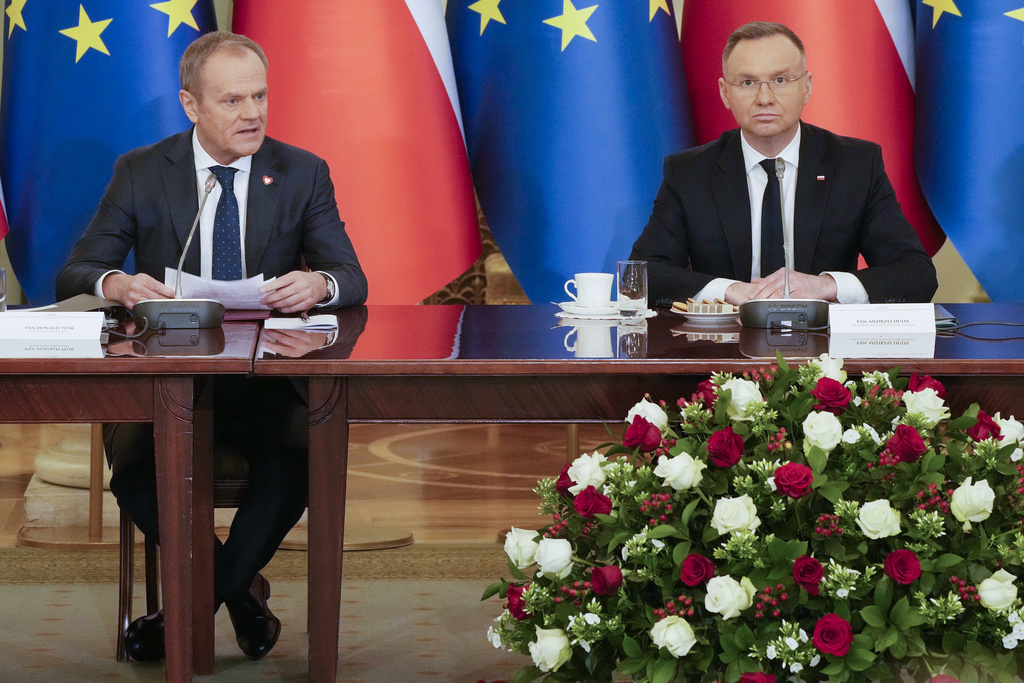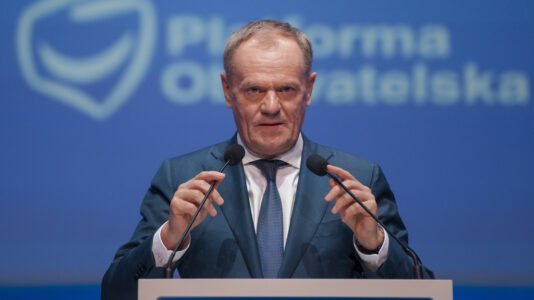Polish Prime Minister Donald Tusk finally could not avoid meeting President Andrzej Duda. The president had to take the oath of office from four new ministers Tusk had appointed last Friday, replacing the four who decided to run in the EU parliament elections due to take place on June 9.
The meeting had been postponed on Tusk’s initiative, even though Tusk himself had asked to meet Duda about the latter’s statements on nuclear sharing, which the government says were made without consultation.
The biggest conflict between Duda and Tusk remains the issue of judicial reform. The justice ministry has introduced conciliatory amendments to the legislative draft, which would see the election of a new National Judicial Council (KRS), the body that makes recommendations for judicial appointments and sets internal rules governing the legal profession. These changes were expected to be enough for the president to desist from vetoing the legislation, as the status of all judges would no longer be challenged.
However, according to unofficial information obtained by the Money.pl news outlet, during the meeting with Tusk, Duda failed to confirm that he would support the legislation. Tusk himself intimated that he believed the negotiations between the Ministry of Justice and the president to have been the ministry’s mistake, which signals that the ruling majority may be thinking of taking a harder line to put more pressure on the head of state.
Another divisive issue between the two men is the question of the continuation of the Central Airport (CPK) project, which Tusk is known for wanting to ditch, while Duda has supported it.
Tusk told Duda he wants to make changes to the project regarding the proposed shape of the railway interchange and to make the project the responsibility of just one ministry rather than two, something that would require legislative consent from the president. Duda is prepared for compromises here, provided the government clearly commits itself to continuing the project.
Finally, Duda and Tusk clashed over the issue of the president’s right to countersign the selection of Poland’s candidate for European commissioner. That right was bestowed on the president by legislation passed by the last parliament.
Tusk and the government’s position is that this legislation contravenes the constitution, which makes foreign policy the domain of the government. During the meeting, Tusk told Duda that he would not respect the legislation and would select a candidate for European commissioner without any countersignature from the president.






